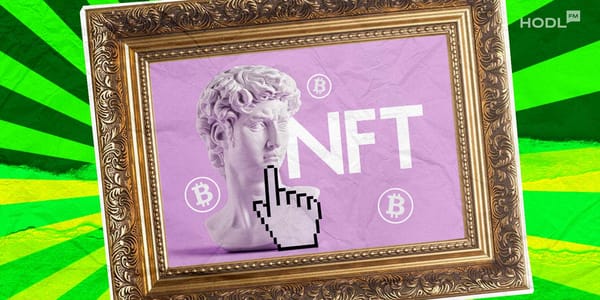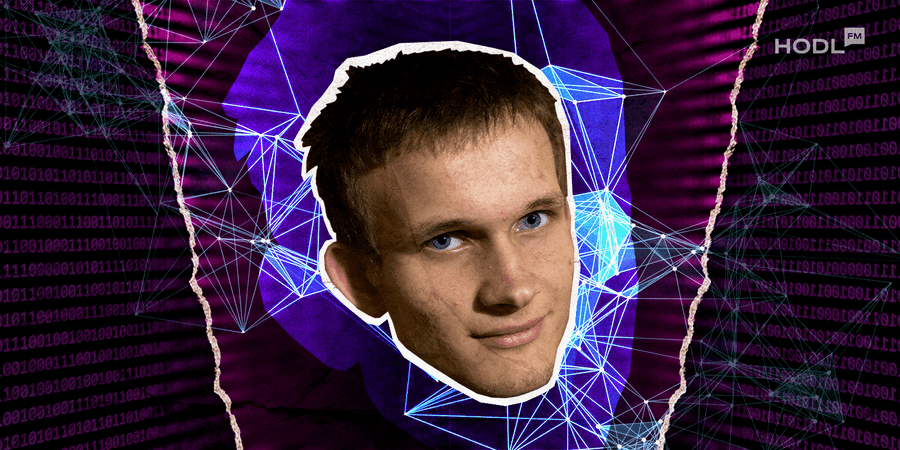Decentralized science or (DeSci) is a wide notion of implementing blockchain in scientific research and taking advantage of features such as tokens, non-fungible tokens (NFTs) and decentralized autonomous organizations (DAOs). The mission is to forge a more open, diverse, community-driven and incentivized research in the scientific field.
Key DeSci market trends include the rise of decentralized research platforms like ResearchHub and vitaDAO, which foster scientific collaboration and knowledge sharing. Yes, minus that one person who ghosts the group project until the last minute.
Moreover, big shots like CZ and Vitalik Buterin are out here giving DeSci the ultimate glow-up. When Vitalik’s on board, you know it’s serious. Or at least trending.
CZ is into DeSci.
— Simon (@sjdedic) November 13, 2024
Brian Armstrong is into DeSci.
Vitalik is into DeSci.
The biggest chads of this industry starting to get vocal about it.
Sure keep on going bidding worthless memecoins, but DeSci will outperform while literally saving lives. https://t.co/5nmTzw3ucv
Following such interest in the space, and its popularity among the crypto elite, DeSci even became an agenda at this year’s Devcon 7. Read on to find out how and why decentralized science is already making waves in the blockchain space.
What Is Decentralized Science (DeSci)?
Decentralized science (DeSci) is an approach to scientific research that uses blockchain technology to create an open, more collaborative and incentivized scientific community. It also aims to fund scientific research using cryptocurrencies.
DeSci is the cyberpunk rebel kid of the scientific world—ditching middlemen such as traditional publishers and funding agencies to build an open, inclusive ecosystem. However, it’s not out here claiming to cure all of science’s woes (it’s not a miracle worker).
Right now, it’s laser-focused on tackling the usual suspects: funding headaches, organizational chaos, and the secretive vibe of traditional science. Think lack of cash, stingy data sharing, outdated publishing practices, and collaboration that feels more like herding cats.
By coming up with tangible solutions, the new approach will foster a fertile ground for diverse perspectives and innovative ideas to flourish. Decentralized science fosters free access to scientific findings by utilizing the blockchain, which makes the research available to many people.
At the same time, the space also seeks to improve scientific processes by making data and publications more accessible to anyone who needs it. Additionally, the individual researcher gets more control since the blockchain ensures there is data security,traceability and the inventor's rights management.
Smart contracts which are made from simple computer programs automatically run the operation of conditional actions.The smart contracts therefore are used to manage who can access this data ensuring that its distribution is fair and secure.
Decentralized science (DeSci) endeavors to modify scientific research and discovery by providing a platform for scientists to raise funding, run experiments,share data and distribute insights and more.
Core Principles and Technologies Underpinning DeSci: How DeSci Works?
- Open science: Through greater collaboration Decentralized science helps to promote diverse viewpoints and sharing of expertise by removing institutional and geographical limitations.
- Accessible data: Decentralized science also seeks to improve scientific practices by making scientific data and publications more accessible. Blockchain technology ensures that the data storage cannot be changed once stored.
- Decentralized Autonomous Organisations: Meanwhile stakeholders are able to manage resources and make decisions without depending on intermediaries or centralized institutions. This is thanks to the autonomy and decentralization of the DAO financial allocations and transparency.
What are DeSci Applications and Notable Use Cases?
VitaDAO
VitaDAO is a decentralized autonomous organization (DAO) at the intersection of DeSci and Decentralized Finance (DeFi) that funds research into longevity and decentralizing. It connects longevity scientists with funding for their research, and supports the development of therapeutics to slow aging and prevent age-related disease.
One of VitaDAO’s funded projects is Humanity, a quantified self-app that connects wearables and activity apps to monitor digital biomarkers.
VitaDAO funds novel funds that have potential to make significant contributions to science, even if riskier.The projects typically with grants of around $250,000 that covers 1-2 yrs od R&D are funded.
Imagine a world where death is optional🤩
— VitaDAO 💛 (@vita_dao) October 18, 2024
Today, we take a bold step towards that future with the launch of VitaLabs 💛
VitaLabs is our in-house network of interdisciplinary scientists dedicated to radically extending human healthspan. ♾
We aspire to push the boundaries of… pic.twitter.com/lIqLZH2SYL
The funds are usually milestone based with more funding given for success.It is a self governed and independent organization that funds projects that other organizations can not.
AthenaDAO
AthenaDAO is the decentralized community of researchers, funders, and advocates working to women’s health research.education and funding. It focuses on translational and transformative research that can lead to changes in women’s health.AthenaDAO offers a 6-week online fertility 101.
The course is for informational purposes only and neither AthenaDAO nor the speakers provide any medical advice.
@Athena_DAO_ is a #DeSci BioDAO whose main mandate is finding IP in translational research.
— AthenaDAO 🧬🪩 (@athena_DAO_) September 12, 2024
Our Science & Deal Flow team - which we are very proud of - has continuously evaluated proposals for #womenshealth R&D 👏
Currently in our pipeline:
3️⃣ IP-NFTS
1️⃣ IPT
2️⃣ Spin-Outs
👇🧵 pic.twitter.com/OvYTWEwj7z
The AthenaDAO ecosystem uses the $ATH utility governance token, which gives holders the right to participate in the DAO. AthenaDAO cooperates with molecules on IP-NFTs,and explores other web3 applications.
AthenaDAO is governed by open-source code, making it resistant to corruption and censorship.
The organisation allows application for women’s health research project.The application process include:
- Filling out an application form
- A introductory assessment by the internal team
- An assessment by a panel of senior scientists
- Negotiation of deal terms with the appropriate institution
- Quarterly updates on funded projects.
GenomesDAO
GenomeDAO is a biotech company that focuses on the secure, private, and auditable monetization of genomic data.
It was founded in London in 2018 as a secure DNA storage and sharing application for addressing ownership, security and privacy of DNA analysis and the process of sharing the results. As such, a person in future will achieve maximum confidentiality of their personalized medical history.
We are delighted to announce funding from web3 powerhouse VCs Pantera Capital and Modular Capital
— Genomes.io 🧬 Genomes.eth (@GenomesDAO) June 12, 2024
We have spent 5 years building out our secure, decentralized, incentivised genomics platform
Now is the time to scale up our data acquisition to make https://t.co/4G3ODbHgx3 the… pic.twitter.com/TZYWhO3XAE
What Are The Benefits and Challenges of Implementing DeSci?
Benefit of DeSci
Boosts Transparency
Thanks to the blockchain as one of its core tenets, DeSci supports all contributions, modifications and results records to live on a transparent and auditable ledger. For example, OpenEarth Foundation, an environmental research center achieves tamper-proof and accessible data by recording everything on-chain.
Boosts Accessibility
DeSci and open science combine to support inclusive research processes and help establish structures that eliminate certain barriers such as institutional, bureaucratic and geographical restrictions. As such, anyone, anywhere can take part in research regardless of their affiliation or location.
A suitable demonstration of this comes from the Polymath Network, a blockchain entity for democratizing and simplifying scientific publishing, so that researchers across the world can publish their work and still gain access to papers.
Enhancing Collaboration
Smart contracts come in handy when enhancing collaboration in the scientific field. When combined with DAOs, scientists can efficiently reduce bureaucracy and boost peer-to-peer interactions.
ResearchHub is a good demonstration of how researchers can collaborate, peer review and share data across a decentralized autonomous organisation model.
Efficient Funding Models
Through cryptocurrencies, DeSci tokens can streamline funding models to ensure they are equitable, transparent and directly impact the work of researchers as per community votes or a certain set of criterion.
vitaDAO has been in the game of funding research projects that are handpicked by the DAO community. The hand-picking is done through token-based voting, and is usually direct and democratic.
Here are the leading top 7 DeSci tokens by market capitalization, as of November 29, 2024:

Challenges Facing DeSci
Ethical Concerns Around Data Sharing
Decentralizing research data may pose a challenge, especially when some of the data is sensitive to data sharing regulations across the world. Which may end up posing a challenge for scientists who want access to certain information but are restricted by regional compliance issues. This alone, challenges the entire values of DeSci.
Funding Amounts
In DeSci, It’s difficult to achieve the astronomical figures that traditional funding routes can direct to scientific research. Community members will only provide modest funding to projects when using DAOs or crypto and science integration, unlike when this funding is being funneled from an organisation such as the National Institute Health (NIH). For instance, NIH in 2018, distributed over $2.1 billion to translational research.
Final Take
By exploiting blockchain technology, DeSci projects promote greater collaboration, inclusivity and diversity driving revolution across various research fields. As we’ve seen, space shows incredible potential to address issues faced by traditional science and disrupt collaboration in research.

Disclaimer: All materials on this site are for informational purposes only. None of the material should be interpreted as investment advice. Please note that despite the nature of much of the material created and hosted on this website, HODL FM is not a financial reference resource and the opinions of authors and other contributors are their own and should not be taken as financial advice. If you require advice of this sort, HODL FM strongly recommends contacting a qualified industry professional.




